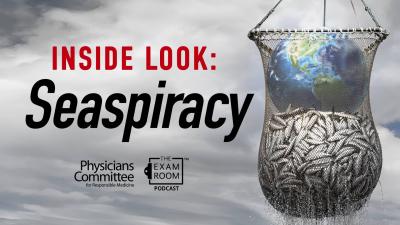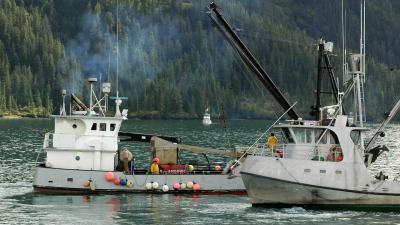Physicians, Animal Protection Groups Laud Passage of Bill To Modernize Hazardous Waste With Alternatives to Live Fish Testing
AB 733 directs Department of Toxic Substance Control to implement modern methods
SACRAMENTO–The California Assembly has just unanimously passed Assembly Bill 733, authored by Asm. Bill Quirk. The Physicians Committee for Responsible Medicine and Social Compassion in Legislation co-sponsored the bill, which could save tens of thousands of fish a year.
Currently, the State of California’s Department of Toxic Substances Control (DTSC) requires waste generators and consumer product retailers to use live fish in a toxicity test to classify hazardous waste. Between 10 and 40 live fish are introduced into tanks containing the waste or product being tested. If 10 percent of the animals die within 96 hours, the waste is designated hazardous. Fish species used include fathead minnows, rainbow trout, and golden shiners. The properties of some testing materials can lead to false positive results, causing California to dispose of waste that may not actually be hazardous, which costs the state money.
AB 733 amends the California’s Health and Safety code, authorizing DTSC to update the criteria and guidelines for the classification of hazardous waste after evaluating two alternative tests.
“The live vertebrate fish test, where a fish is essentially choked to death in toxic waste, isn’t just cruel – it’s antiquated, and out of sync with scientific consensus,” said Judie Mancuso, founder and CEO of Social Compassion in Legislation, co-sponsor of the legislation and several other bills on animal rights, protection and welfare. “Other methods are already in use around the world, and there’s no reason for California to lag behind.”
Assemblymember Bill Quirk (D-Hayward), author of AB 733, continued, “The current law requires our state to engage in a practice that no ethical or modern brand in the private-sector would ever consider using. I want to thank my colleagues in the Assembly for moving this bill—and our state—forward.”
“California is the only state in the country using this outdated test to classify its hazardous waste. There are more advanced and humane approaches available to protect our waterways from hazardous waste, and we are proud to have helped advance this bill to move DTSC regulations towards adopting these approaches,” says Kristie Sullivan, MPH, vice president of research policy for the Physicians Committee.
The passage of AB 733 comes the same week that the State Assembly passed bills to incentivize vegan lunch options in K-12 schools and to ban the sale of certain exotic animal skins, and that the California State Senate took steps to ban the captivity of animals in circuses.
“California has always been a leader on doing what’s right for animals and the environment,” Mancuso added, “and this week is showing that that commitment hasn’t changed.”
Media Contact
Reina Pohl, MPH
202-527-7326
rpohl[at]pcrm.org
Founded in 1985, the Physicians Committee for Responsible Medicine is a nonprofit organization that promotes preventive medicine, conducts clinical research, and encourages higher standards for ethics and effectiveness in education and research.









